A Conversation with Bruce Duffie
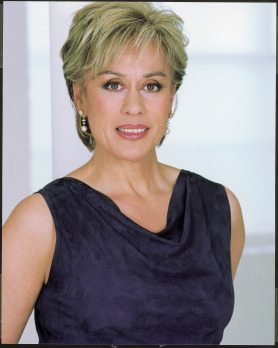
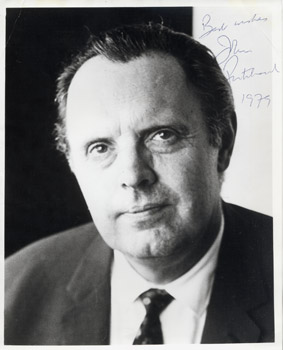


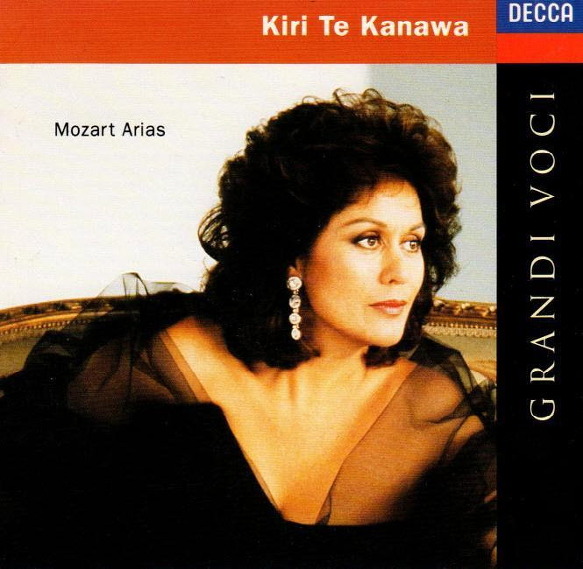 BD: That’s my sport…swimming. I
vote for that. [Coming back to the subject at hand] Tell me
the secret of singing Mozart.
BD: That’s my sport…swimming. I
vote for that. [Coming back to the subject at hand] Tell me
the secret of singing Mozart. SJP: Yes, that’s right. I
think Kiri will
agree that the work in the room at the beginning is important.
Sitting at the piano, I’ve always found those little sessions when
you have to go through the arias and the ensembles and discuss
points of phrasing is marvelous. When you
come to Puccini or even Verdi, so much is written already in the score,
so provided the singer is well-prepared and the conductor knows his
job, you don’t have that amount of discussion. But with Mozart
you can discuss and say, “Try it this way, or what about shading this
or
making it a diminuendo,” and so on. All of these are technical
things which the audience on the receiving end only appreciate because
they hear how fine-tuned the whole thing is. That’s the
collaboration which Kiri and I have enjoyed for a long
time, and it’s absolutely necessary. It is also an ensemble
piece. For example, in the lovely
ensemble trios and quartets, and quintets or sextets of Figaro, it’s no use having
one voice which is going to stick out. In the ensemble pieces,
they’ve got to listen to each other and that’s great.
SJP: Yes, that’s right. I
think Kiri will
agree that the work in the room at the beginning is important.
Sitting at the piano, I’ve always found those little sessions when
you have to go through the arias and the ensembles and discuss
points of phrasing is marvelous. When you
come to Puccini or even Verdi, so much is written already in the score,
so provided the singer is well-prepared and the conductor knows his
job, you don’t have that amount of discussion. But with Mozart
you can discuss and say, “Try it this way, or what about shading this
or
making it a diminuendo,” and so on. All of these are technical
things which the audience on the receiving end only appreciate because
they hear how fine-tuned the whole thing is. That’s the
collaboration which Kiri and I have enjoyed for a long
time, and it’s absolutely necessary. It is also an ensemble
piece. For example, in the lovely
ensemble trios and quartets, and quintets or sextets of Figaro, it’s no use having
one voice which is going to stick out. In the ensemble pieces,
they’ve got to listen to each other and that’s great. 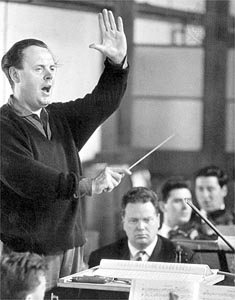 SJP: Part of it is the
size of the auditorium. My debut at the Metropolitan Opera was in
Così Fan Tutte, and I
was just underwhelmed by the difficult
acoustic. To be able to get the ensemble or the right kind of
sound at
Covent Garden is much easier. It has very good acoustic.
SJP: Part of it is the
size of the auditorium. My debut at the Metropolitan Opera was in
Così Fan Tutte, and I
was just underwhelmed by the difficult
acoustic. To be able to get the ensemble or the right kind of
sound at
Covent Garden is much easier. It has very good acoustic.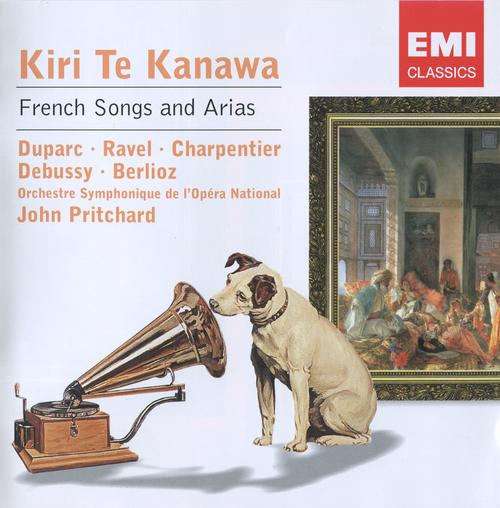 SJP: There is perhaps more for the
conductor to think of the
style in French music. That arrives, for example, if you’re
playing a
Beethoven symphony and then you come to a Debussy tone poem or
something
like this. The texture of the writing is so different that you’re
not a
very good artist or conductor unless you take it into account, and
unless you ask the orchestra for this. It’s like the difference
between a water color or an oil painting. There’s a difference in
technique and there’s a
difference of effect on your eyes as you look. It is the
same with your ears when you hear the refinement like in this
beautiful Ravel song cycle that we’ve done together. This is such
tone painting and the poems. I live in France so I can be a bit
rude about the French, but I always say that they are so oriented
towards the spoken word. The French by and large
prefer dramatic theatre to opera or anything else. They are
taking big
strides now all over France to catch up. I don’t want to
offend anybody by saying that they need to catch up that much, but
their refinement is first and foremost directed towards spoken words or
plays in the theatre. When their language is sung to them, it
adds another dimension. For those who are not French-speaking,
the actual sound
comes first and they realize that it’s clothing the words in beautiful
sound. But every Frenchman that I know is really listening to
his mother tongue and then to the sound. Do you think that
is true?
SJP: There is perhaps more for the
conductor to think of the
style in French music. That arrives, for example, if you’re
playing a
Beethoven symphony and then you come to a Debussy tone poem or
something
like this. The texture of the writing is so different that you’re
not a
very good artist or conductor unless you take it into account, and
unless you ask the orchestra for this. It’s like the difference
between a water color or an oil painting. There’s a difference in
technique and there’s a
difference of effect on your eyes as you look. It is the
same with your ears when you hear the refinement like in this
beautiful Ravel song cycle that we’ve done together. This is such
tone painting and the poems. I live in France so I can be a bit
rude about the French, but I always say that they are so oriented
towards the spoken word. The French by and large
prefer dramatic theatre to opera or anything else. They are
taking big
strides now all over France to catch up. I don’t want to
offend anybody by saying that they need to catch up that much, but
their refinement is first and foremost directed towards spoken words or
plays in the theatre. When their language is sung to them, it
adds another dimension. For those who are not French-speaking,
the actual sound
comes first and they realize that it’s clothing the words in beautiful
sound. But every Frenchman that I know is really listening to
his mother tongue and then to the sound. Do you think that
is true?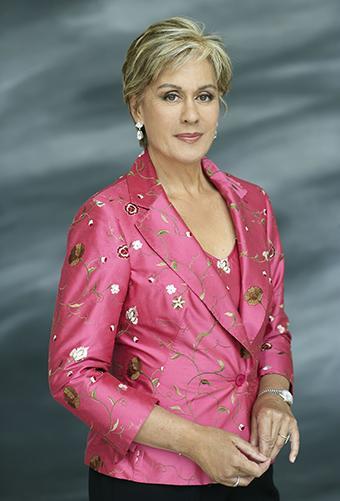 BD: Are we encouraging enough young
audiences to come to
theatre, opera, symphony, plays?
BD: Are we encouraging enough young
audiences to come to
theatre, opera, symphony, plays?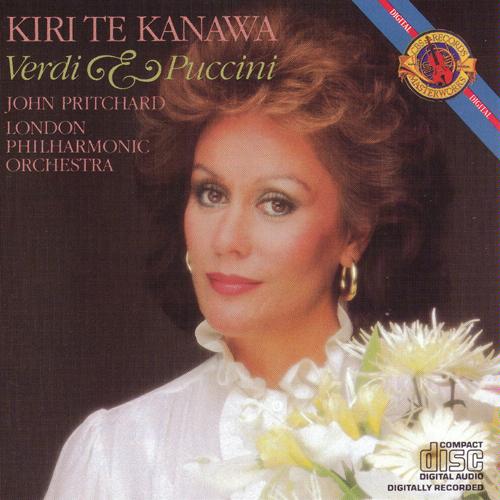 KTK: It is very difficult now
because everyone knows that you get a more perfect sound and you get a
more
perfect recording than you do in the concert hall simply because
you can cut in a good note and take out a bad one. I really
don’t think that there is a great comparison. It’s not worlds
apart, but it is at least you can stop and have a drink
of water if you’re not having a great time. But in the theater
you have
to keep going.
KTK: It is very difficult now
because everyone knows that you get a more perfect sound and you get a
more
perfect recording than you do in the concert hall simply because
you can cut in a good note and take out a bad one. I really
don’t think that there is a great comparison. It’s not worlds
apart, but it is at least you can stop and have a drink
of water if you’re not having a great time. But in the theater
you have
to keep going.  KTK: That was seventeen years ago.
KTK: That was seventeen years ago.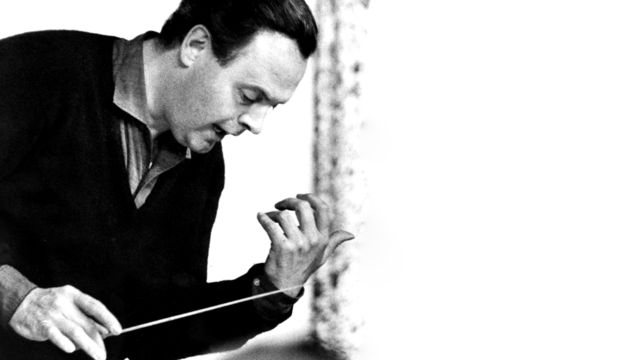 SJP: Kiri’s very
instinctive with music and always has
been, and if there is a little inaccuracy, she’s aware
of it. It’s rather like the princess with
the pea under the mattress. She can feel the discomfort about
something which has gone a
little bit wrong rhythmically or otherwise. It’s more that than
the pedantic. I often feel that listeners to music think that
we’re
all very pedantic and mechanical about trying to get everything
absolutely right. It’s like getting a total figure right when you
cast them out by hand, but it isn’t somehow like
that. Error in any field of art causes a kind of feeling of
unease. It’s imbalance when it isn’t right. Somehow
singers,
for example, compose their own little phrases. I’ve often
conducted and thought I must tell them about it because
they’re singing different shapes; the same melody but slightly
different. This can happen and it
can become a habit. Therefore, there’s no discomfort in
there because it’s a musical instinct taking over from the
actual mechanics of learning something. I think instinct’s very
important in music.
SJP: Kiri’s very
instinctive with music and always has
been, and if there is a little inaccuracy, she’s aware
of it. It’s rather like the princess with
the pea under the mattress. She can feel the discomfort about
something which has gone a
little bit wrong rhythmically or otherwise. It’s more that than
the pedantic. I often feel that listeners to music think that
we’re
all very pedantic and mechanical about trying to get everything
absolutely right. It’s like getting a total figure right when you
cast them out by hand, but it isn’t somehow like
that. Error in any field of art causes a kind of feeling of
unease. It’s imbalance when it isn’t right. Somehow
singers,
for example, compose their own little phrases. I’ve often
conducted and thought I must tell them about it because
they’re singing different shapes; the same melody but slightly
different. This can happen and it
can become a habit. Therefore, there’s no discomfort in
there because it’s a musical instinct taking over from the
actual mechanics of learning something. I think instinct’s very
important in music. |
Kiri
Te Kanawa (Soprano)
Born: March 6, 1944 - Gisborne, on the east coast of New Zealand’s North Island The Maori soprano, Kiri Te Kanawa, is the adopted daughter of an Irish mother and Maori father. After winning the John Court Aria Prize and the Mobil Song Quest, Kiri shot to stardom in New Zealand and was accepted without audition to study at the London Opera Centre in 1965. 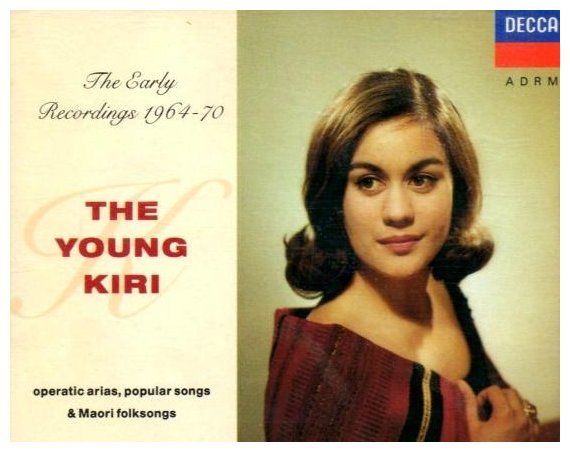 After appearing in little known operas such as Delibes’ Le Roi l’a dit and Wolf-Ferrari’s The Inquisitive Woman, Kiri Te Kanawa received critical praise as Idamantes in Mozart's Idomeneo. Soon after, Kiri was granted a three-year contract as a junior principal at Covent Garden. Kiri Te Kanawa came to international attention singing the role of Xenia in Boris Godunov and the Countess in Le Nozze di Figaro. After achieving world-wide celebrity status, Kiri was made an Officer of the Civil Division of the Most Excellent Order of the British Empire, an honor that was later sold at a police auction for £500 to raise money for the Mitchum Amateur Boxing Association. After her successes at Covent Garden, Kiri Te Kanawa performed her Metropolitan Opera debut as Desdemona in Otello (replacing an ill Theresa Stratas). Her other performances include Fiordiligi in Così fan tutte, Arabella in Arabella, Rosalinde in Die Fledermaus, Violetta in La Traviata, Tosca in Tosca, Pamina in Die Zauberflöte and, most notably, her numerous performances as Donna Elvira in Mozart’s Don Giovanni. In 1981, Kiri Te Kanawa was chosen to sing "Let the Bright Seraphim" at St. Paul's cathedral at the marriage of HRH the Prince of Wales [shown in photo below] to the Lady Diana Spencer. The following year she was created a Dame of the British Empire by HM Queen Elizabeth II. 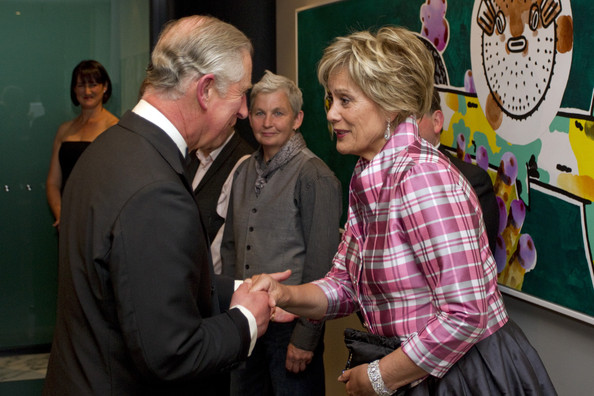 Kiri Te Kanawa married Desmond Park, whom she met on a blind date, in Auckland the 30th of August 1967. The couple adopted two children, Antonia and Thomas, in 1976 and 1979 respectively. The pair divorced in early 1997. Most recently, on March 10, 1994, Kiri performed in concert celebrating her 50th birthday at The Royal Albert Hall. |
|
Sir
John Pritchard, Music Director, Is Dead at 68
John Rockwell The New York Times December 6, 1989 Sir John Pritchard, the music director of the San Francisco Opera and, until early this year, of the BBC Symphony and the Cologne Opera, died of lung cancer yesterday at the Seton Medical Center in Daly City, Calif. He was 68 years old. An expert in the music of Mozart and Rossini as well as of contemporary composers, Sir John made his last public appearances in October in six performances of Mozart's ''Idomeneo'' in San Francisco. He was to have conducted Handel's ''Orlando Furioso'' there starting Nov. 19, but was unable to do so. John Michael Pritchard was born in London in 1921. He was taught music by his father, a violinist in the London Symphony Orchestra, and later studied viola and piano in Italy and conducting with Sir Henry Wood. In 1947 he joined the staff of the Glyndebourne Festival, becoming an assistant to Fritz Busch, and stepped in during a 1949 performance of Mozart's ''Don Giovanni'' when Busch fell ill. He made his formal conducting debut there in 1951, and his longtime association with the festival continued as a conductor, adviser and music director (1969-78). He is to be buried near the site of the festival. In an interview, he once recalled Busch telling him: ''John, you have a natural sense of tempo. You were born with it. It's the most priceless gift for conductors.'' Lifelong Freelancer Sir John's career was divided between concerts and opera. He made his debut with the Vienna State Opera and with the Royal Opera, Covent Garden, in 1952 and his American debut with the Pittsburgh Symphony in 1953. Although he freelanced throughout his life, his permanent engagements included music director of the Royal Liverpool Philharmonic (1957-63), the London Philharmonic (1962-66), the Theatre de la Monnaie in Brussels (1981-86), the Cologne Opera (1978 until this summer) and the BBC Symphony (1982 until October). In Liverpool, he was active in the Musica Viva concerts, subsequently repeated in London. He was knighted in 1983 for his service to English contemporary music. Among his important operatic premieres were Britten's ''Gloriana'' and Sir Michael Tippett's ''Midsummer Marriage'' and ''King Priam.'' In September he realized a longtime ambition by leading the final night of the Proms, the BBC's popular summer concert series at the Royal Albert Hall in London, although illness forced him to sit while conducting. Sir John's longtime companion was Terrence MacInnes. No family members survive. The funeral is to be in London late next week. The San Francisco Opera is to hold a memorial service on Monday at 11 A.M. at Grace Cathedral in San Francisco. |
This interview was recorded in her apartment in Chicago on
December 19, 1987. It was used as part of the
in-flight entertainment package aboard United Airlines and Air Force
One in 1988, and several times on WNIB. The
transcription was posted on this
website in 2013.
To see a full list (with links) of interviews which have been transcribed and posted on this website, click here.
Award - winning broadcaster Bruce Duffie was with WNIB, Classical 97 in Chicago from 1975 until its final moment as a classical station in February of 2001. His interviews have also appeared in various magazines and journals since 1980, and he now continues his broadcast series on WNUR-FM, as well as on Contemporary Classical Internet Radio.
You are invited to visit his website for more information about his work, including selected transcripts of other interviews, plus a full list of his guests. He would also like to call your attention to the photos and information about his grandfather, who was a pioneer in the automotive field more than a century ago. You may also send him E-Mail with comments, questions and suggestions.